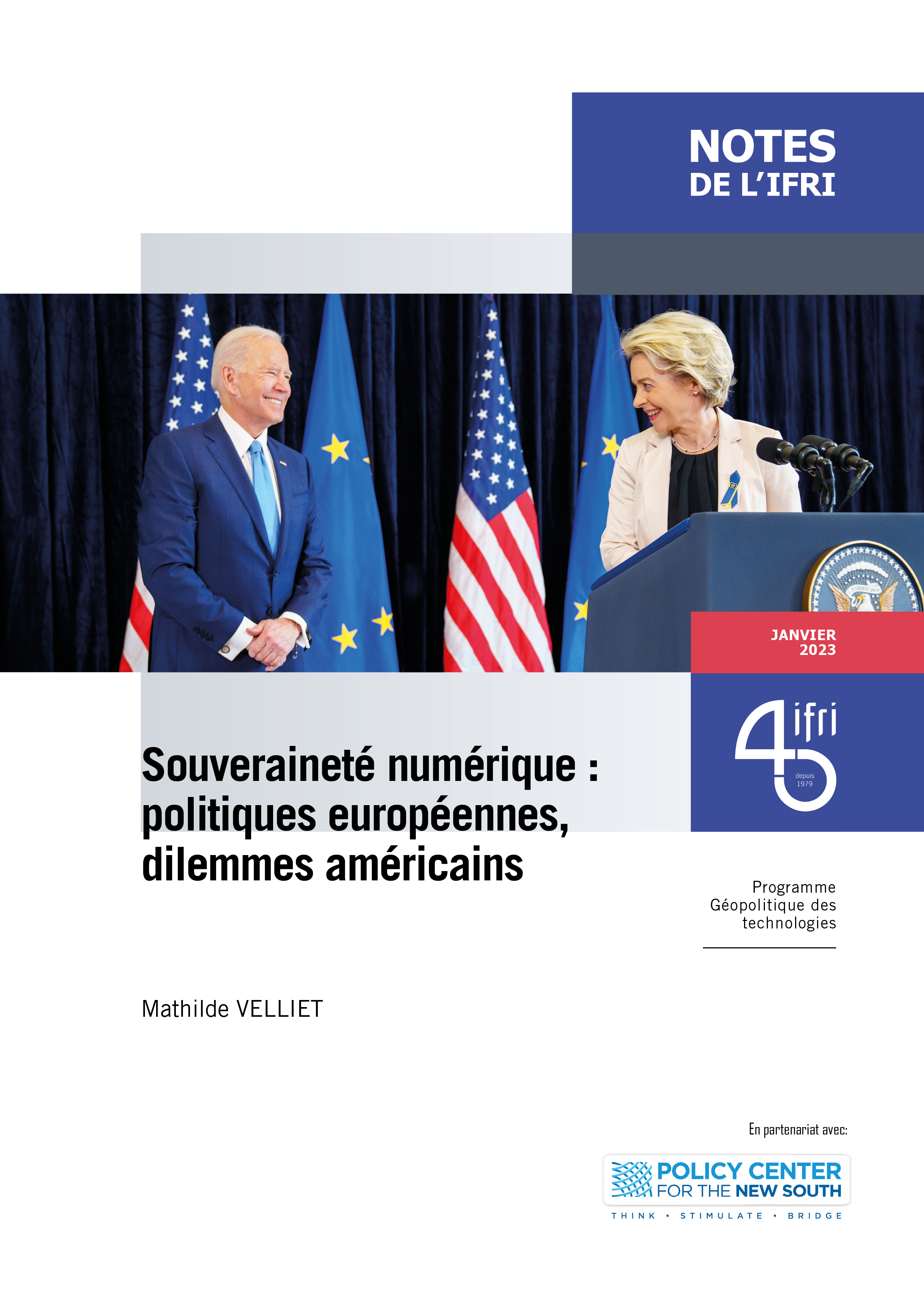Digital Sovereignty: European Policies, American Dilemmas

European digital sovereignty has been made a priority by Ursula von der Leyen’s European Commission. Due to the privileged position of American companies in the European market, Brussels’ efforts towards digital sovereignty (on privacy, antitrust, data sovereignty, etc.) are closely scrutinized by American policymakers.

They often view European initiatives as “protectionist” and unfairly targeting U.S. companies.
However, the American vision of European digital sovereignty has evolved in recent years under the influence of two main factors. On the one hand, awareness of the problematic effects and practices of platforms has led to a consensus on the need for reform in the digital sector. On the other hand, technological competition with China has been elevated to a priority.
This vision remains fraught with contradictions, along inter-party, intra-party, inter-agency, state-federal, and issue-based fault lines. Washington’s position on anti-monopolistic practices is an illuminating example, characterized by a double discourse between a desire to reform the U.S. digital sector domestically and active diplomacy to dilute these efforts at the European level. Nonetheless, several American actors – particularly in the legislative branch – are seeking to learn from the successes and flaws of European regulations for American reform projects, such as on platform regulation or privacy.
The China factor reinforces the ambiguity of the U.S.’ position. It creates new opportunities for cooperation in the face of perceived common vulnerabilities (infrastructure security, inbound investments, etc.) and autocratic definitions of digital sovereignty. However, it also raises tension and misunderstanding on the American side towards European reforms that often target American companies more than Chinese ones.
Lastly, while American and European companies have adapted to the need for digital sovereignty through a range of technical and commercial solutions, the temptation of a maximalist definition of European sovereignty continues to create major stumbling blocks, particularly on the cloud.
This paper is available in two languages:

Available in:
Regions and themes
ISBN / ISSN
Share
Download the full analysis
This page contains only a summary of our work. If you would like to have access to all the information from our research on the subject, you can download the full version in PDF format.
Digital Sovereignty: European Policies, American Dilemmas
Related centers and programs
Discover our other research centers and programsFind out more
Discover all our analysesArtificial Promises or Real Regulation? Inventing Global AI Governance
The risks inherent to the unregulated use of AI, a key technology and vector of profound transformations within societies underline the pressing need to harmonize governance efforts at the international level. The Summit for Action on Artificial Intelligence to be held in Paris in mid-February could be an unprecedented timely occasion to agree on a global governance framework of AI for the public good.
AI, Data Centers and Energy Demand: Reassessing and Exploring the Trends
The information and communication technologies sector today accounts for 9% of global electricity consumption, data centers for 1-1.3%, and artificial intelligence (AI) for less than 0.2%. The growing energy demands of cloud services first, and now AI workloads (10% of today’s data centers electricity demand), have exacerbated this trend. In the future, hyperscale data centers will gain shares amongst all kinds of data centers and AI will probably account for around 20% of data centers electricity demand by 2030.
From nonproliferation to strategic competition: US export controls and China
Technological competition is at the heart of the renewed great-power competition that has characterized relations between the USA and China since the 2010s. The role of technological innovation in the evolution of power relations is already recognized in the literature of international relations. However, developments in US technology policy under the last two administrations raise the reverse question: how does the perception of changing power relations (in this case, Chinese technological catch-up perceived as a threat to US leadership) transform policies granting or denying access to technological innovation?
China’s Mature Node Overcapacity: Unfounded Fears
China is decoupling from, not flooding, the global mature-node semiconductor market. As China increasingly pursues industrial policies encouraging domestic chip production, its own growing chip demand will prevent a direct flood of cheap Chinese chips on foreign shores. However, as Beijing achieves its goal of decreasing the reliance of domestic downstream manufacturers on foreign chips, European and American mature-node semiconductor companies will feel the ripple effects of an increasingly “involuted” Chinese chip ecosystem.










